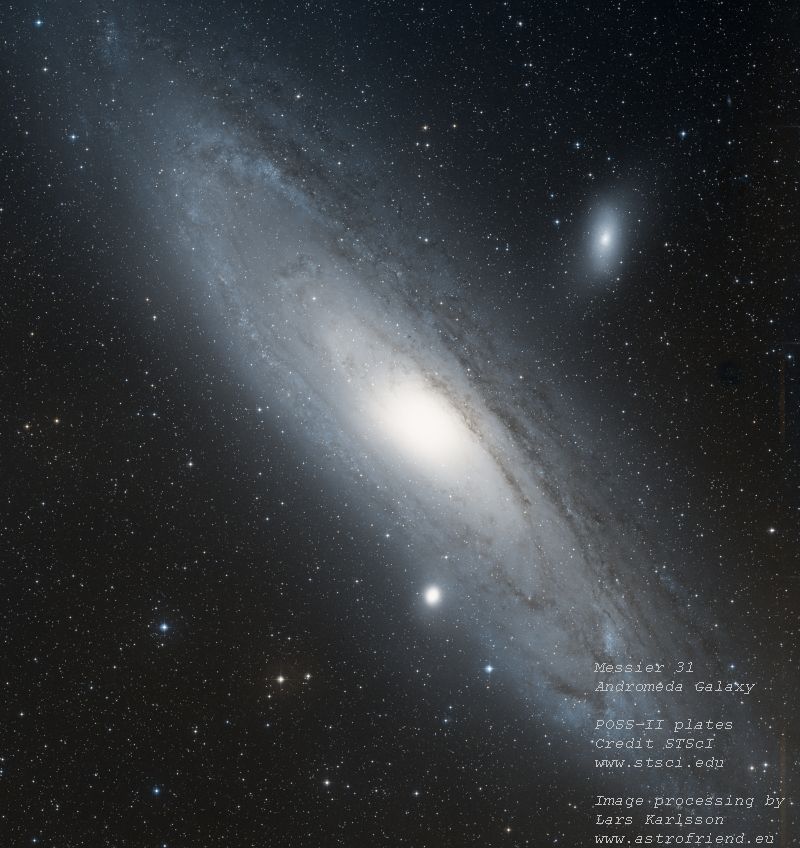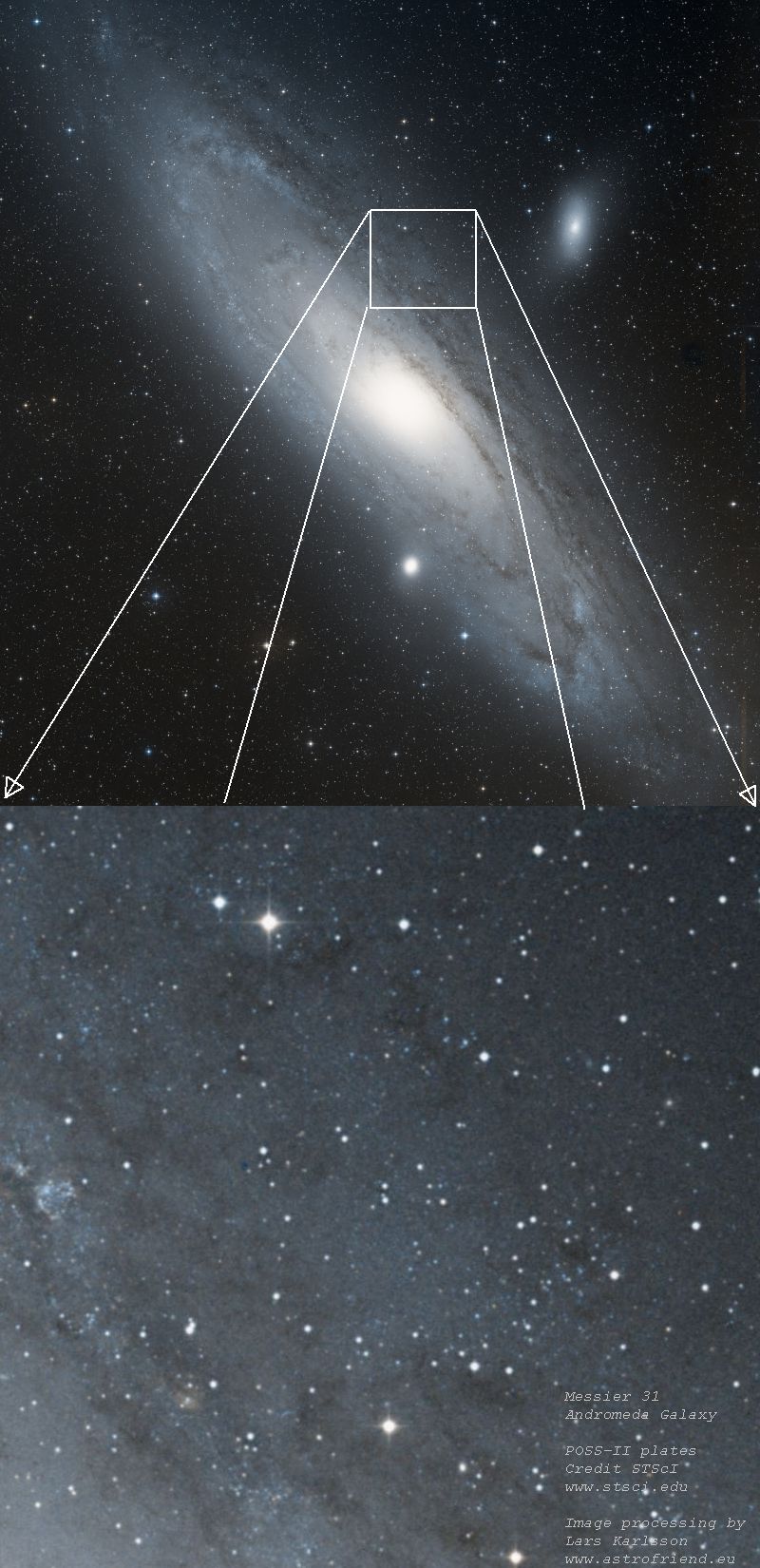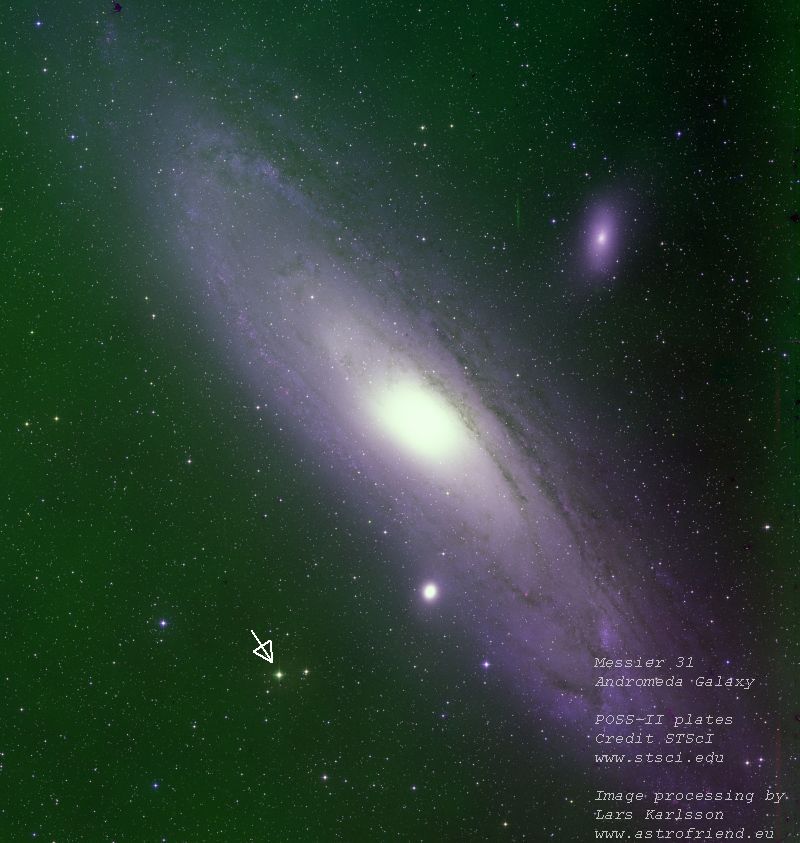| Coordinates/Direction : | RA: 00h42m, DEC: +41o16' |
| Object size : | 192' x 60' (whole image 120' x 120') |
| Object magnitude : | 3.4 |
| Object : | Messier 31 |
| Date : | 1985 to 2000 |
| Lens/telescope : | Samuel Oschin Telescope |
| Film/CCD : | POSS-II, credits: STScI |
| Exp. time : | IR 75 minutes, Red 60 minutes, Blue 60 minutes |
| Image process tool : | AstroImageJ, Fitswork, Irfanview |
| Processing : | Green channel from average of red and blue |
| Site : | Mount Palomar, USA |
| Comment : |
Compare what you get from your own telescope, the core of galaxy oversaturated. |
| More to know : |
Wikipedia:
https://en.wikipedia.org/ wiki/ Andromeda Galaxy |
| Zoom in details : | 1:1 pixel scale |
| Comment : |
As you can see if you compare to the earlier POSS-I data this one has higher resolution.
The scanner resolution is the same in the blue plates. |
| Image process tool : | AstroImageJ, Fitswork, Irfanview |
| Processing : | In this image the IR spectra has been used to the green output channel |
| Comment : |
It looks that something is wrong or maybe heavy light pollution in the IR spectra.
You can get rid of it by doing a background flatten. But anyway the galaxy don't look to have any strong IR sources.
One star (the arrow) looks to be strong in the IR spectra (green). If I identified it correct it's HD4174, it have the spectral class M3,
a red subgiant. |
| More to know : |
Spectral classes:
https://en.wikipedia.org/ wiki/ Stellar classification
Star HD 4174:
http://simbad.u-strasbg.fr/simbad/sim-id?Ident=HD+4174
Spectrum of HD 4174:
http://iopscience.iop.org/ article/ 10.1086/ 126211/ pdf
|


